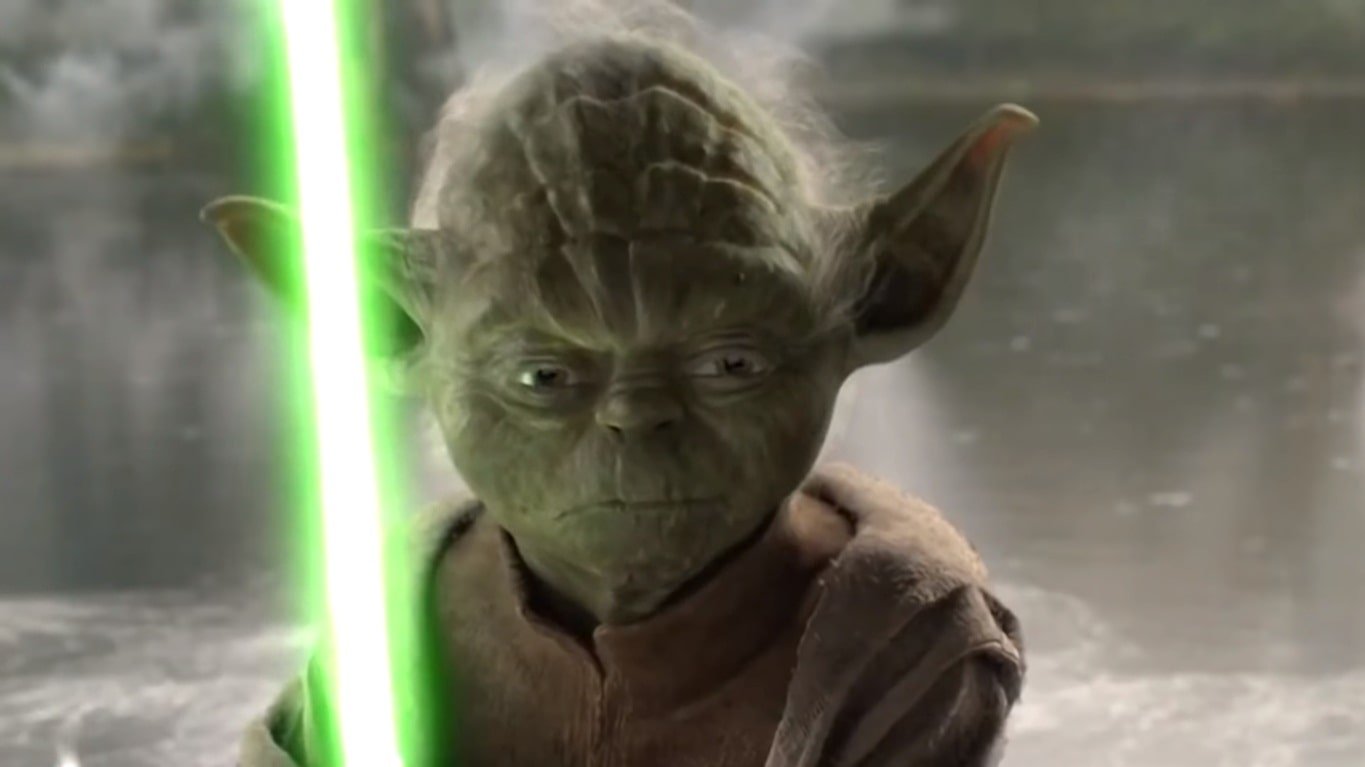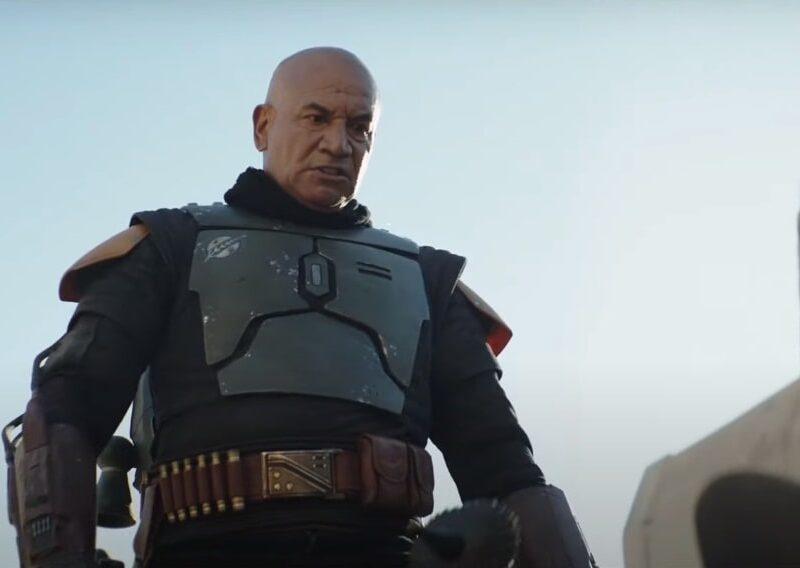1. What is a Jedi Consular?
A Jedi Consular was one of three primary paths that a Jedi could choose after achieving the rank of Jedi Knight, with the other two being Jedi Guardian and Jedi Sentinel. Guided by the Council of Reconciliation, the Consulars preferred to use diplomatic methods to promote peace and harmony within the Galactic Republic.
Jedi Consulars only drew their lightsabers as a last resort, dedicating much of their time to studying the mysteries of the Force. While the role of a Consular remained mostly consistent throughout history, it was first documented by Jedi Seer Sabla-Mandibu in the text The Jedi Path: A Manual for Students of the Force.
2. What is the Role of Jedi Consulars?
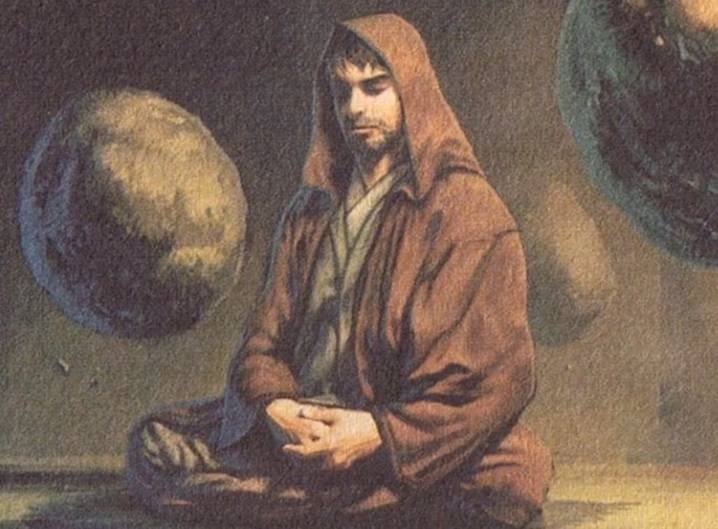
Where Jedi Guardians used combat to resolve conflicts, Jedi Consulars relied on words or the nonviolent application of the Force. Focusing on mental development through study and meditation, Consulars aimed to master diplomacy and mediation. Their goal was to ease tensions and resolve disputes with reason and negotiation rather than through combat.
Though Consulars avoided confrontation whenever possible, they still carried lightsabers, often with green blades, to represent their commitment to peace. Despite their preference for peace, Consulars were skilled at using the Force against adversaries, making it challenging for enemies to withstand their abilities.
Although some Jedi Guardians exhibited the Force potential seen in Consulars, many Consulars were also formidable in combat. Renowned lightsaber duelists like Nomi Sunrider, Vima Sunrider, Yoda, Shaak Ti, and Kit Fisto exemplified this duality.
Working alongside the Republic Diplomatic Corps, the most esteemed Consulars earned a position on the Council of Reconciliation. While many served as diplomats, the Consulars’ roles extended beyond the Galactic Senate. Teachers, seers, and healers were also part of the Consular mindset, and all were respected members of the Jedi Order. Among the Consulars, the most accomplished Jedi Masters were honored with the title of Sage Master.
3. What are the Divisions of Jedi Consulars?
The Consulars played many roles in the Jedi Order and the galaxy at large, leading to a variety of career options within this path: Jedi Ambassadors, Jedi Diplomats, Jedi Healers, Lore Keepers, Jedi Researchers, and Jedi Seers.
3.1 Jedi Ambassador
Jedi Ambassadors acted as intermediaries between newly discovered worlds and the Republic Senate, often requested by foreign governments to mediate discussions about joining the Republic. Unlike Jedi Diplomats, Ambassadors were primarily figureheads representing the Republic and did not have the authority to make significant decisions or shape policy for either party.
3.2 Jedi Diplomat
Jedi Diplomats, unlike Ambassadors, were tasked with drafting treaties and resolving political disputes. With their extensive knowledge of galactic politics and their Force-imbued insights, Diplomats were adept at navigating delicate negotiations.
3.3 Jedi Healer
Drawn to the healing path by their compassion and desire to help others, Jedi Healers took a holistic approach to medicine, using the Force to speed up the natural healing process. Led by the Circle of Jedi Healers, they drew upon the Living Force to sustain life and treat injuries. Often working closely with the Medical Corps, they frequently served on the frontlines, providing care for wounded soldiers during wartime.
3.4 Lore Keeper
Lore Keepers, comprising Jedi archivists, historians, and librarians, were overseen by the Librarian’s Assembly in the Jedi Temple on Coruscant. Their main responsibility was to preserve and maintain the Jedi Archives. While each group specialized in different areas, they collaborated closely to safeguard the vast collection of knowledge within the Archives. The Chief Librarian, a Jedi Master, held the highest rank in this branch.
3.5 Jedi Researcher
Jedi Researchers, made up of specialists, contributed to the Order by continually updating the Archives. Their expertise ranged from archaeology to mathematics, biology, geology, astronomy, and hyperspace physics.
3.6 Jedi Seers
Attuned to the Unifying Force, the Seers of the Jedi Order possessed the rare ability of pre- and postcognition, allowing them to perceive future events and past occurrences through the Force. Among them, Jedi Prophets were even rarer, capable of foretelling significant events such as the Prophecy of the Chosen One. One notable Seer was Vorkara Che, who also served as the Chief of Healers.
4. What Specializations Emerged for Jedi Consulars During the Great Galactic War?
During the Great Galactic War and the Cold War that followed, Jedi Consulars could choose between two advanced specializations: Jedi Sages and Jedi Shadows.
4.1 Jedi Sage
Jedi Sages were highly proficient in manipulating the Force to the point that they could tear apart enemies and alter reality. Skilled in using Force Shield and Force Wave, Sages were also exceptional healers, diplomats, ambassadors, seers, and telekinetic and Force combat specialists.
4.2 Jedi Shadows
Jedi Shadows operated in secrecy, wielding double-bladed lightsabers and employing the Force to cloak or conceal their presence. They were experts in lightsaber combat, unlike their Sage counterparts, and mastered the combination of physical combat and Force techniques.
5. Who are the Legendary Jedi Consulars in History?
Across the ages, certain Jedi Consulars have distinguished themselves as paragons of wisdom, skill, and peacekeeping, leaving profound legacies in both the Order and the galaxy. Here are five Consulars whose lives and deeds have become part of Jedi lore:
5.1 Yoda
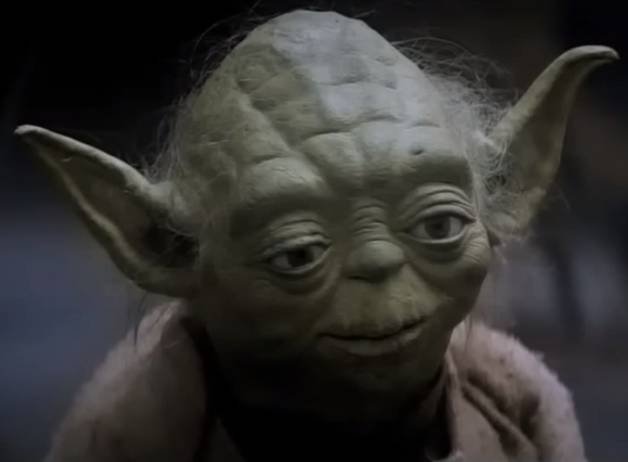
One of the most revered Jedi Masters in history, Yoda embodied the ideals of the Jedi Consular. With over 800 years of service to the Order, Yoda’s wisdom and knowledge of the Force were unparalleled.
As Grand Master of the Jedi Order, Yoda trained generations of Jedi, guiding the Order through both prosperous and challenging times. He was renowned for his patience, deep insights into the nature of the Force, and his leadership during the Clone Wars. Though he was a skilled lightsaber duelist, Yoda preferred to seek peace over conflict, making him a quintessential Consular.
5.2 Satele Shan

A revered Jedi Grand Master during the era of the Old Republic, Satele Shan was both a powerful Jedi and a skilled diplomat, often balancing tense negotiations with formidable prowess in combat. She was a descendant of Revan and Bastila Shan, inheriting a strong connection to the Force that made her a master in both telekinesis and battle meditation.
Satele played an important role in the Jedi Order’s resilience against the Sith Empire and is remembered as a figure of strength, resilience, and leadership during a critical era for the Jedi.
5.3 Shaak Ti

Shaak Ti, a Togruta Jedi Master, served on the Jedi High Council during the waning years of the Republic. Known for her calm presence and grace under pressure, she was a skilled healer and diplomat who commanded great respect within the Order.
Her mastery of the Force and natural sense of empathy allowed her to connect with others, whether healing or negotiating on their behalf. Even in times of great conflict, Shaak Ti remained steadfast, her actions embodying the Jedi Consular’s commitment to peace and understanding.
5.4 Kit Fisto
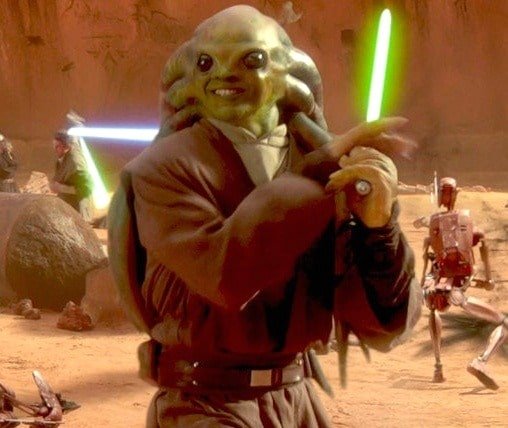
Although often seen on the front lines during the Clone Wars, Kit Fisto was a Consular deeply attuned to the Living Force. His easygoing demeanor and warmth earned him admiration from both Jedi and clones alike.
Kit’s rare gift of Force-assisted underwater adaptation set him apart, allowing him to serve in diverse environments, especially his homeworld of Glee Anselm. His commitment to peace, paired with his powerful connection to the Force, demonstrated that even in battle, a Jedi Consular could act with compassion and respect for life.
5.5 Nomi Sunrider
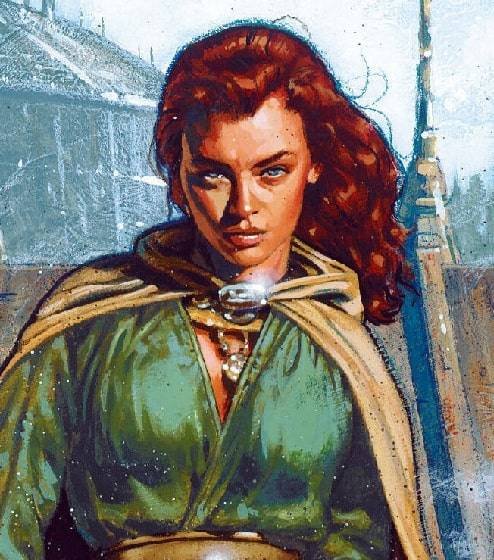
Nomi Sunrider, a powerful Jedi Consular during the Great Sith War, was known for her unique skill in battle meditation, an ability to influence and bolster the morale of allies while dampening the spirits of enemies. Her leadership and bravery were pivotal in the Jedi’s efforts against the Sith.
After her husband’s death, she reluctantly took up the Jedi path, quickly rising in influence and power. Nomi’s strength in the Force and her gift in battle meditation made her one of the greatest Consulars of her era.
5.6 Vima Sunrider

The daughter of Nomi Sunrider, Vima continued her family’s legacy, becoming a powerful Jedi in her own right. Under her mother’s guidance, she learned both the mysteries of the Force and the ways of the Consular.
Vima’s strength, particularly in the turbulent times that followed the Great Sith War, inspired hope in others. Her dedication and insight embodied the Consular path, proving that even in the face of adversity, the light of the Jedi could endure.
6. How has the Role of Jedi Consulars Evolved Over Time?
Two Sage Masters joined forces with two Warrior Masters to establish the Jedi Temple on Coruscant around 4000 BBY. These Four Masters were commemorated with bronzium statues placed on the main entrance steps along the Processional Way.
Among the earliest notable Jedi Consulars were some of the Order’s founders, including Rajivari, Ters Sendon (the first chronicler of the Jedi Order), Garon Jard, and Cala Brin. Thousands of years later, Odan-Urr, a chief archivist and chronicler who lived for nearly a millennium, became famous for his mastery of battle meditation and his unparalleled wisdom.
After his passing, Kreia—a historian and librarian—served as a Jedi Consular and Jedi Master. Jedi Knight Nomi Sunrider and Chief Librarian Atris were other notable Jedi Consulars of that era, both gaining seats on the Jedi High Council.
During the Great Galactic War, several centuries later, Satele Shan emerged as one of the most famous Jedi Consulars. Like her ancestor Bastila Shan, Satele was a master of battle meditation. She rediscovered Tython, the birthplace of the Jedi, and after the Republic’s defeat at the end of the decades-long Great Galactic War, Satele was appointed Grand Master of the Jedi Order for her wisdom, calm demeanor, battle meditation, combat skills, and extensive experience.
Other renowned Jedi Consulars included the healer Syo Bakarn and the Kel Dor Jedi Masters and archivists Ostar-Gal and Gnost-Dural.
Following the Great Galactic War, under Master Satele Shan’s leadership, the Jedi Order regained its strength and began participating in the Cold War that followed around 3643 BBY. During this time, a highly skilled and wise Jedi Consular known as the Barsen’thor emerged, believed to be unmatched in wisdom and insight in that era.
The Barsen’thor saved the Jedi Order from destruction at the hands of a dark plague caused by Lord Vivicar by mastering the lost Shielding Technique. This technique allowed the Barsen’thor to heal afflicted Jedi Masters who had fallen into madness. After tracking down and defeating Lord Vivicar in combat, the Barsen’thor freed him from the influence of Terrak Morrhage’s spirit.
After these accomplishments, the Barsen’thor earned the ancient title of Barsen’thor, which had not been used for millennia due to the lack of Jedi who had achieved similar feats. When the Rift Alliance—an influential group of planets vital to the Republic—threatened to secede, the Barsen’thor was appointed as the Jedi Order’s diplomat and ambassador.
The Barsen’thor succeeded in convincing the Alliance to remain with the Republic by helping each of the member planets in some way. The Rift Alliance later came under attack by the Children of the Emperor, dark-side Force-users empowered by Sith sorcery. The Barsen’thor shielded the Alliance and, with its support, helped form a stronger army for the Republic.
The Barsen’thor also forged alliances with key figures, such as Hallow Voice, leader of the Esh-kha, who agreed to support the Republic with his forces. After saving the homeworld of the Voss and gaining their allegiance, the Barsen’thor assembled a combined force of Esh-kha warriors, Voss Commandos, and Mystics to confront the Children of the Sith Emperor.
During this battle, the Barsen’thor uncovered that the Children were protected by the First Son, the most powerful of the Emperor’s Children, who, to the Barsen’thor’s shock, was revealed to be Syo Bakarn. After defeating and redeeming the First Son, the Barsen’thor took his place on the Jedi Council.
There was a period of silence after the Cold War until the conflict involving Darth Desolous, during which no notable Jedi Consulars were recorded. During the New Sith Wars, Jedi Master Worror Dowmat and Chief Librarian Barra-Rona-Ban were renowned Jedi Consulars. After the Sith Wars, Grand Master Fae Coven, another Jedi Consular, rose to prominence.
A thousand years later, Grand Master Yoda became arguably the most famous and powerful Jedi Consular in galactic history. Other distinguished Jedi Consulars of that time included Luminara Unduli, Kit Fisto, Shaak Ti, and Barriss Offee.
7. What is the Impact of Jedi Consulars on the Jedi Order?
Jedi Consulars have had a lasting impact on the Jedi Order, shaping both its philosophy and its approach to galactic events across multiple generations. Their focus on wisdom, deep meditation, and a holistic understanding of the Force positioned them as key figures during times of peace and diplomacy.
Unlike their more combat-focused counterparts, the Jedi Consulars emphasized the Force’s nonviolent applications, using it as a tool for healing, negotiation, and the resolution of conflicts without bloodshed. This focus on maintaining peace through understanding and restraint left a lasting impression on how the Jedi Order viewed its role in the galaxy.
Over time, the Consulars helped establish the Jedi Order’s reputation as peacekeepers and mediators rather than warriors. While other Jedi might have been drawn into the heat of battle or politics, the Consulars often worked behind the scenes to defuse tensions before they escalated into full-scale wars. Their commitment to maintaining balance within the Force and their reluctance to resort to violence aligned with the Jedi Code’s ideals, particularly its core tenet of preserving life whenever possible.
The Jedi Consulars were instrumental in expanding the Order’s understanding of the Force beyond just a tool for combat or physical feats. They explored the Force’s deeper mysteries, developing techniques such as Force Healing and Battle Meditation, which allowed them to influence outcomes without direct confrontation.
These abilities highlighted the vast potential of the Force beyond combat and emphasized the importance of mental and spiritual discipline. As a result, Consulars became respected not just for their wisdom but also for their ability to guide others—both within and outside the Jedi Order—toward peaceful resolutions.
Even after the Great Jedi Purge and the rise of the Galactic Empire, the influence of the Jedi Consulars persisted. Though the Jedi were scattered, their teachings lived on through surviving Force users and scholars who preserved the Consulars’ traditions. This enduring legacy was evident in how future generations of Force-sensitive individuals approached the balance between action and contemplation. Jedi Consular principles reminded them that the Force was not just about power or domination but also about harmony, understanding, and the importance of avoiding conflict when possible.
In rebuilding the Jedi Order after its destruction, the wisdom of the Consulars provided a foundation for new teachings. Future Jedi sought to reclaim the Consulars’ emphasis on diplomacy, healing, and the pursuit of knowledge, recognizing that these values were essential for maintaining peace in the galaxy.
Their methods offered a path forward that relied on patience and wisdom, standing as a testament to the importance of the mind and spirit in wielding the Force responsibly. This balance between action and reflection continued to inspire generations of Jedi, long after the original Consulars had passed into legend.
The Jedi Consulars left a legacy that transcended their individual accomplishments, embedding their philosophy deeply into the Jedi Order’s DNA. Their impact stretched far beyond their time, serving as a guiding light for those who would come after them.
In a galaxy often defined by conflict, the Jedi Consulars’ dedication to peace and their understanding of the Force’s more subtle powers remain an important reminder of the value of wisdom, patience, and the pursuit of knowledge over brute force.
Explore Our Lightsaber Collection
Tony Allen is a writer for LightsabersBlog.com, a website focused on everything related to lightsabers. Tony grew up in Austin, Texas, and went on to study Mechanical Engineering at the University of Texas. Passionate about science fiction and fantasy, Tony has always been deeply involved in hobbies like tabletop RPGs, sci-fi novels, miniature painting, and crafting. This love for creative pursuits drives Tony to write about lightsabers in a way that ignites the imagination of fans around the world.

